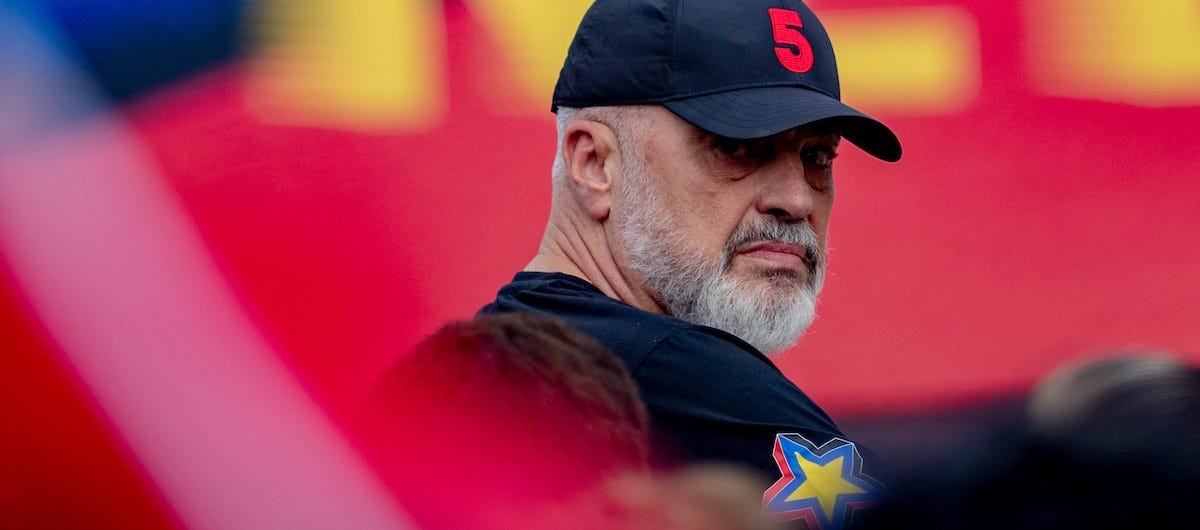Rama’s Fourth Act: Between Brussels and the Mafia
As Albania votes, glass towers rise, garbage burns, and power clings to charm. Edi Rama paints progress while corruption corrodes the canvas beneath his brush.
On a warm Sunday morning in May, the streets of Tirana stir with the usual paradoxes of modern Albania: a cityscape where glassy high-rises sprout beside Soviet-era blocks, and where espresso-sipping locals argue politics in the smoky hush of open-air cafes. This Sunday, May 11, 2025, marks a pivotal moment in the life of this Balkan nation, as some 2.4 million citizens-plus, for the first time, 250,000 members of the diaspora head to the polls. It’s a day charged with the anticipatory electricity of democratic ritual, though the outcome may already seem written.

Prime Minister Edi Rama, the towering, silver-bearded figure who has ruled Albania since 2013, is seeking an unprecedented fourth term. His promise? That Albania will, at last, shake off its murky past and join the European Union by 2030. It is a message woven through his campaign speeches, delivered with artistic flair, the same flair that once defined his work as a painter and mayor of Tirana. But the canvas of Albanian democracy is stained with controversy, and even Rama’s charisma cannot conceal the broader picture.
The incinerator scandal, once a political ember, now a wildfire has ignited anger from Elbasan to Brussels1. In this scandal, the waste-to-energy project that was supposed to symbolise green progress has become the very emblem of systemic rot. The Elbasan plant, funded by taxpayer money and foreign loans, hasn’t burned trash in months. Birds now circle above a landfill choked with refuse. When the wind shifts, the stench pushes through windows and into the lungs of disillusioned residents.
“This is how things are in Albania,” said Besim Stafa, a resident of Elbasan. “They spend a lot of money for nothing.”
Following a sweeping investigation by Albania’s Special Anti-Corruption Structure (SPAK), the former environment minister, Lefter Koka, was imprisoned. Former deputy prime minister Arben Ahmetaj fled the country after being charged, calling himself a scapegoat in a broken system. Critics argue that the case reveals how deeply the veins of corruption run through Albania’s institutions.
Rama’s supporters, meanwhile, chant a different tune. They credit him with transforming Albania’s international image: economic growth has surpassed 4% annually from 2022 through 2024, a new runway at Tirana’s airport promises direct flights to the United States, and foreign investors from oil magnates to Jared Kushner, are staking claims on the Adriatic coast. The country was even removed from the Financial Action Task Force's grey list in 2023, a move hailed in Washington and Brussels alike.
Yet such victories are double-edged. Kushner’s proposed luxury resort on the unspoiled Zvernec island, backed by Saudi capital, has enraged conservationists and locals. The Washington Post’s investigation last summer unveiled the government’s quiet dismantling of environmental protections, painting Rama not as a steward of the land but as its auctioneer2. Flamingos and loggerhead turtles may soon share their habitat with bulldozers.



